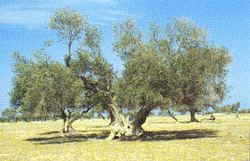| Chinese - Japanese |
  |
Wine and Cuisine Today, agriculture remains the backbone of the Tunisian economy. Throughout the central areas, olive trees dominate the landscape, set in rows right to the horizon, as far as the eye can see. In the surroundings of Sfax, each of these trees produces an average of 50 kilos of olives, the equivalent of 12 to 15 liters of olive oil. Today, Tunisia is the fourth largest producer of olives in the world.
Starting with the ancient ingredients of wheat and olive oil, each culture has contributed to Tunisia's distinctive and healthy Mediterranean cuisine. The Arabs introduced the spices and the cooked, aged butter known as smen. Italians added tomatoes to the sauces and the French introduced the concept of separate courses. The Turks were responsible for the sticky, honey-oozing pastries.
While beer and traditional spirits made from dates and figs are found in a few cafés in the cities, most typical Tunisian bars are patronized exclusively by men. In European-style hotels drinks may be more expensive but the atmosphere is relaxed and both Tunisian women and men feel at ease there. On Fridays, wine is only available in the restaurants of tourist hotels. Spend an Afternoon in Olive Country
The Mahjoub family of Tebourba have been growing olives and producing quality cold pressed olive oil for more than 100 years. Following the autumn harvest of their crop, Olives are sorted, washed and put into large hoppers. From there they are crushed by a stone roller and the flesh separated from the pits. The olives are then pressed again and filtered through ten layers of round, handwoven esparto grass mats. As the oil drips to the bottom it is caught in a cistern and later bottled in the traditional way. Guests of Atlantis Voyages have the opportunity to spend an afternoon with members of the Mahjoub family learning about their historic art and enjoying a leisurely lunch made from local produce, including many varieties of olives.
|
||||||||||||||||||||||||


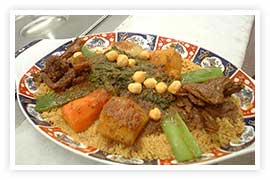
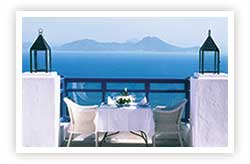
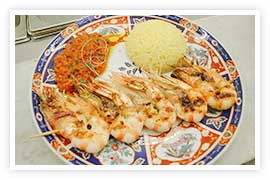
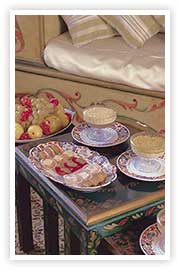 The national dish, couscous, a stew of vegetables with meat or fish served on a bed of steamed semolina grains, is a savored legacy of Berbers.
The national dish, couscous, a stew of vegetables with meat or fish served on a bed of steamed semolina grains, is a savored legacy of Berbers.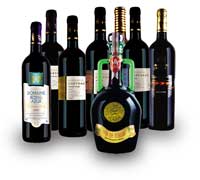 The tradition of lovingly caring for the vine has continued unbroken from Magon's day. The fine wines of Tunisia are found in most restaurants and can be consumed for a fraction of the price of a good wine in most parts of the world.
The tradition of lovingly caring for the vine has continued unbroken from Magon's day. The fine wines of Tunisia are found in most restaurants and can be consumed for a fraction of the price of a good wine in most parts of the world. 